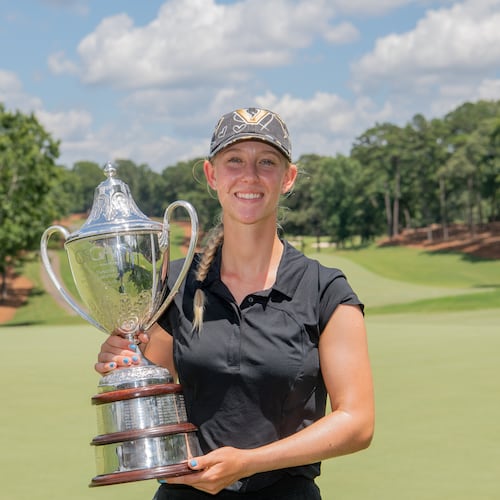To expect the Atlanta Braves to keep winning at this rate is to deny all we know about baseball. They’re 11-1. To carry that .917 winning percentage over 162 games would be to finish 148-14, which would break the major-league record for victories in a season by 32 games, which would mean the 2013 Braves would become the winningest team ever around Labor Day.
The Braves’ record will, guaranteed, get worse. But there’s reason to believe the Braves themselves will get better.
Through two weeks, the Braves’ top run producers have been: Justin Upton, who’s averaging nearly an RBI a game; Evan Gattis, who got his shot because Brian McCann isn’t ready; Freddie Freeman, who’s on the disabled list, and Ramiro Pena, of whom nobody had heard nine days ago. Together, Jason Heyward, Dan Uggla and B.J. Upton have driven in fewer runs than has Gattis by his outrageous self.
B.J. Upton is batting .163, and that’s after a three-hit game Sunday. Heyward is batting .103, which is worse than Paul Maholm, who’s not paid to hit. Uggla is again doing the Uggla thing of walking some, striking out a lot and barely hitting (.177) a lick, which raises the question: Ramiro Pena, starting second sacker?
The great everyday eight the Braves envisioned hasn’t yet coalesced, and still this team has stolen a march on the ballyhooed Washington Nationals. Justin Upton – according to ESPN Stats & Information, each of his seven home runs has traveled at least 400 feet – has been tremendous, and Gattis has been nearly as good, and Freeman was off to a flying start before tweaking his oblique, but nobody else has been tearing it up. Yes, that’s good news.
The greatest truth about baseball numbers is this: The fewer the numbers, the less truth therein. Justin Upton isn’t going to hit 98 homers, even though he’s on pace to do so. (If he does, he’ll break Barry Bonds’ record by 25 and make everyone affiliated with MLB very happy.) But Heyward isn’t apt to hit .103 much longer, and you’d have to think B.J. Upton won’t be hitting 188 percentage points lower than his sibling forever.
The Braves have gotten it going without many among them getting it going, and that suggests that winning big might indeed be (sabermetric word upcoming) sustainable. ESPN Stats also informs us that, of the four previous teams that started 11-1 since the dawn of the wild-card era, three missed the playoffs. These Braves will not miss the playoffs, and the reason for that is, same as it ever was, starting pitching.
In the Braves-vs.-Nats debate, starting pitching was where Washington figured to have its edge. (The everyday eights were seen as a push; the Braves clearly have the better bullpen.) The Braves just completed their D.C. sweep by beating Stephen Strasburg, who didn’t yield an earned run, and Gio Gonzalez, who yielded seven, on consecutive days, and a rotation not regarded as elite has indicated it might actually be. As Tim Hudson, who’s 2-0, said in spring training: “Not many people are talking about us, and that’s OK.”
If we learned anything in the ’90s, it’s that division titles are won by rotations. (The 1995 Braves hit .250, second-worst in the National League, and won not only a division but the World Series.) Through 12 games, the Braves’ starting pitchers have the second-best ERA in baseball, are second in WHIP (walks and hits per innings pitched) and have held opponents to a lowest-in-the-majors .208 batting average.
That’s quality starting, and that’s the best sign yet. And remember: Brandon Beachy, who was leading the big leagues in ERA when he was hurt last season, is due back in June.
This sounds fanciful in the wake of 11-1, but the Braves have room to improve. Freeman and McCann and Beachy and Jonny Venters are on the DL, and they’re all capable of great work. This lineup won’t lead the league in on-base percentage, and it is, as everyone figured, striking out at a fearsome rate (8.67 K’s per game, which projects to 1,404 over a full season). Still, there should come a day when the batting order is better balanced.
Assuming that happens, and assuming the relievers remain resolute, the determinant between wild card and division champ – between that loathsome play-in game and a bye into the first full playoff round – will be starting pitching. If this rotation can keep rotating, the Braves can win 100 games. That wouldn’t be 148, but it should suffice.
About the Author
Keep Reading
The Latest
Featured



